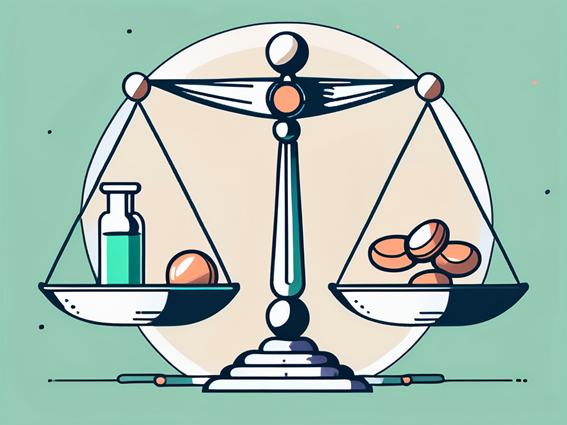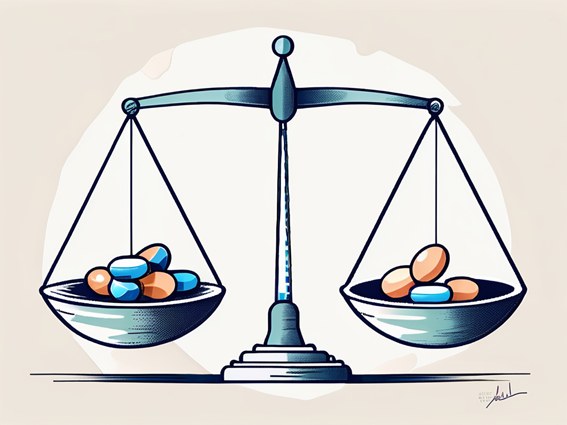In today’s rapidly advancing world of pharmaceutical development, the intersection of ethics and evolution raises a myriad of complex questions. As scientific breakthroughs continue to push the boundaries of what is possible, it becomes imperative to ask ourselves how morality plays a critical role in shaping the future of medicine. This article will delve into the ethical considerations that arise in pharmaceutical research, clinical trials, marketing, and drug pricing, as well as explore the delicate balance between profit and ethics in the pursuit of innovation.
The field of pharmaceutical research is ever-evolving, fueled by the relentless pursuit of scientific progress. However, this progress has not come without ethical dilemmas. Studying the ethics of evolution in pharmaceutical research raises questions about the boundaries of experimentation and the moral implications of altering the fundamental building blocks of life. As scientists delve into the realms of genetic engineering and gene editing, we must grapple with the ethical implications of manipulating the very essence of what it means to be human.

On one hand, these advances have the potential to save lives and alleviate suffering. Gene therapy, for example, holds promise for treating previously incurable diseases. On the other hand, these scientific endeavors can also encroach upon ethical boundaries. The deliberate manipulation of genes raises concerns about unintended consequences, unequal access to these therapies, and the blurring of the line between therapy and enhancement.
Moreover, the intersection of ethics and evolution in pharmaceutical research extends beyond the confines of the laboratory. It permeates into societal debates, legal frameworks, and cultural perceptions. The discourse surrounding the ethical considerations of genetic manipulation is not limited to the scientific community but extends to policymakers, religious institutions, and the general public. This broad spectrum of stakeholders adds layers of complexity to the ethical landscape, shaping the trajectory of pharmaceutical research and its societal implications.
As we navigate this intricate terrain, it becomes increasingly crucial to establish robust ethical guidelines and frameworks that balance scientific advancement with moral responsibility. The evolving nature of pharmaceutical research demands a proactive approach to ethical considerations, ensuring that innovation is tempered with conscientious reflection on the potential ramifications of our actions. By fostering interdisciplinary dialogues and engaging in transparent discussions, we can strive towards a future where scientific progress in pharmaceutical research is not only groundbreaking but also ethically sound.
When it comes to clinical trials, ethical considerations are paramount. These trials involve volunteers who put their trust in researchers to conduct studies in a fair and transparent manner. Ensuring informed consent, minimizing risks, and protecting the rights and welfare of participants are fundamental ethical principles that must be upheld throughout the entire process.
It is essential for researchers to not only prioritize the well-being of participants but also to consider the broader implications of their work. Ethical oversight committees play a crucial role in evaluating the potential risks and benefits of clinical trials, ensuring that the research is conducted ethically and with integrity. Additionally, researchers must take into account factors such as diversity and inclusivity to ensure that the results are applicable to a wide range of populations.
Pharmaceutical marketing, too, must operate within the ethical framework. The promotion of drugs requires a delicate balance between providing accurate information to healthcare professionals and consumers while avoiding misleading claims. Transparency in clinical trial results, disclosure of potential conflicts of interest, and responsible advertising are critical to maintaining public trust in the pharmaceutical industry.
Furthermore, ethical marketing practices extend beyond the dissemination of information to encompass the broader impact of pharmaceutical products on society. It is essential for pharmaceutical companies to consider the affordability and accessibility of their products, especially in underserved communities. By prioritizing ethical marketing strategies, companies can contribute to improving public health outcomes and fostering trust among stakeholders.
Morality evolves alongside scientific progress. As new drugs and treatments are discovered, society must confront ethical questions that may not have been relevant before. Issues such as patient autonomy, access to healthcare, and societal impact come to the forefront as we strive to strike a balance between progress and moral responsibility.

For example, the development of high-cost drugs for rare diseases presents a unique ethical challenge. On one hand, these drugs offer hope to patients who have previously been left with no treatment options. On the other hand, their high price tags raise concerns about affordability, equity, and the prioritization of resource allocation. Balancing the needs of patients with the financial constraints of healthcare systems requires thoughtful reflection and ethical decision-making.
In addition, the globalization of drug development has introduced a new layer of complexity to ethical considerations. Clinical trials conducted in developing countries raise questions about exploitation, informed consent, and the standard of care provided to participants. Ensuring that research is conducted ethically and that the benefits of drug development are equitably distributed across different populations is a critical challenge facing the pharmaceutical industry.
Furthermore, the rise of personalized medicine, driven by advances in genomics and precision medicine, has raised ethical dilemmas related to data privacy, consent, and the potential for discrimination based on genetic information. As researchers uncover new ways to tailor treatments to individual patients based on their genetic makeup, questions about ownership of genetic data and the implications for insurance coverage and employment opportunities have come to the forefront of ethical debates in drug development.
Drug pricing has become a contentious issue, with debates centering around the ethical implications of exorbitant costs. The affordability and accessibility of life-saving medications are directly tied to ethical considerations of distributive justice and the obligation to prioritize the well-being of individuals over profit margins.
Pharmaceutical companies must navigate the fine line between recouping research and development costs while ensuring that life-saving medications remain within reach for those in need. The ever-increasing prices of drugs raise concerns about inequality in healthcare, particularly affecting vulnerable populations. Balancing the bottom line with the ethical duty to provide accessible healthcare calls for a reevaluation of pricing structures and a commitment to ethical decision-making.
Moreover, the impact of moral values on drug pricing extends beyond just the financial aspect. It also delves into the realm of public health outcomes and societal well-being. When medications are priced out of reach for certain populations, it can lead to detrimental consequences such as increased morbidity and mortality rates. This, in turn, can place a strain on healthcare systems and lead to a cascade of negative effects on communities.
Therefore, the ethical considerations surrounding drug pricing go beyond mere financial transactions; they have far-reaching implications on the health and welfare of society as a whole. It is imperative for stakeholders in the pharmaceutical industry to prioritize ethical values in their pricing strategies to ensure that life-saving medications are accessible to all who need them, regardless of their socioeconomic status.
The pursuit of profit can sometimes collide with ethical considerations, placing pharmaceutical companies in a difficult position. While financial success is necessary for sustainability and continued innovation, it must not come at the expense of compromising moral principles.

Pharmaceutical companies face the challenge of maintaining ethical conduct while meeting the demands of shareholders and investors. The pressure to maximize profits can lead to questionable practices, such as prioritizing marketing and sales strategies over patient well-being. Striking the right balance between profit and ethics requires transparent governance, adherence to ethical guidelines, and a commitment to putting patients’ interests first.
One of the key ethical dilemmas in pharmaceutical innovation is the pricing of life-saving drugs. Companies must weigh the need to recoup research and development costs against the moral imperative to make essential medications accessible to all patients, regardless of their financial means. The debate over drug pricing has sparked public outrage and calls for regulatory intervention to ensure affordability without stifling innovation.
Furthermore, the ethical responsibilities of pharmaceutical companies extend beyond product pricing to include clinical trial transparency and data integrity. Ensuring that research findings are accurately reported and openly shared is essential for upholding scientific integrity and safeguarding patient safety. Any compromise in these areas can erode trust in the pharmaceutical industry and have far-reaching consequences for public health.
As pharmaceutical development continues to push the boundaries of what is possible, the critical role of morality cannot be overstated. Ethical considerations must guide every aspect of the industry, from research and clinical trials to marketing, drug pricing, and innovation. Striking a balance between advancing scientific progress and upholding moral principles is essential to ensure that pharmaceutical development benefits society as a whole. By fostering an open dialogue and emphasizing transparency, we can navigate the ethical complexities of pharmaceutical development to create a future that is both groundbreaking and morally grounded.